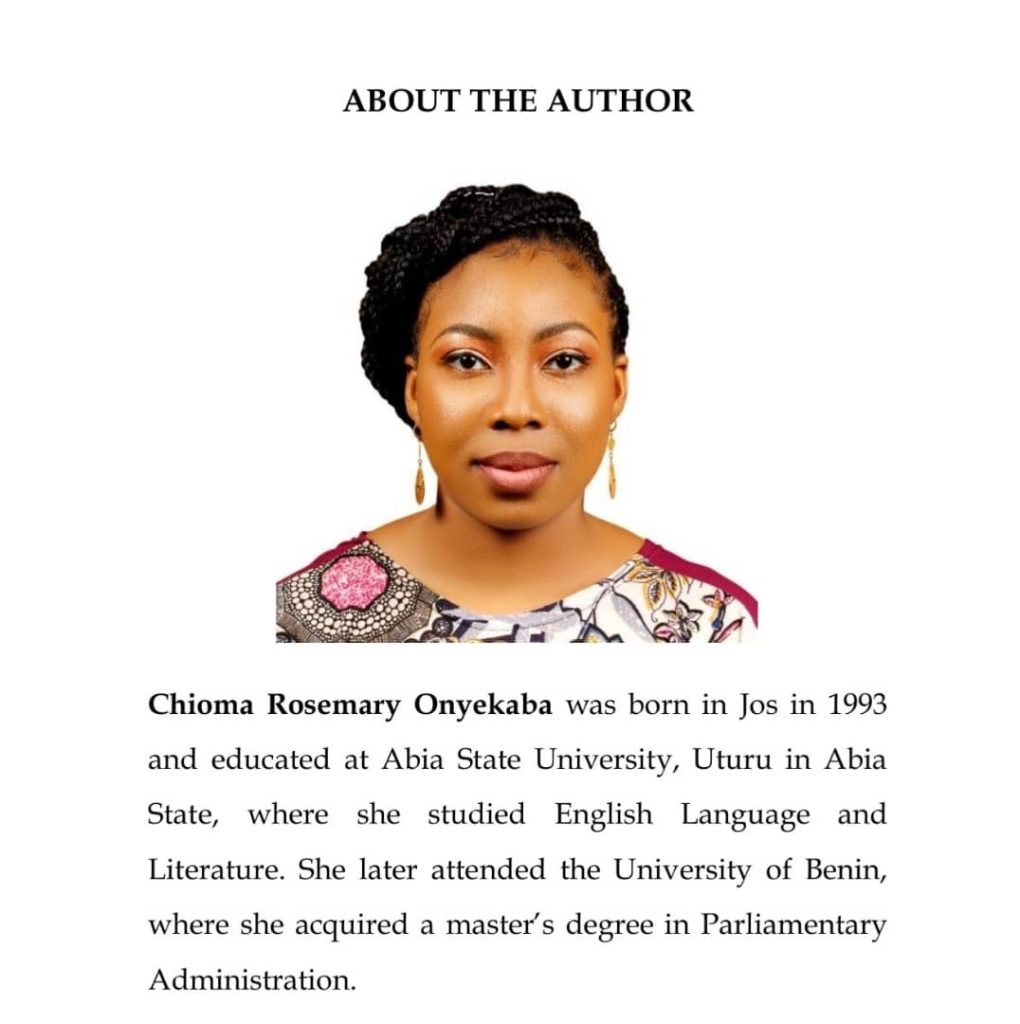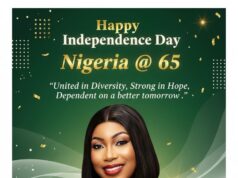
Chioma Rosemary Onyekaba’s “Wives are for Rainy Days, Side Chicks are for Best Days” offers a profound exploration of the complexities of marital relationships, tackling the heavy themes of infidelity, emotional trauma, and self-worth. This novel captures broadly, the lives of Ekene and Uche, a couple whose marriage, though fresh and full of promise, quickly descends into a world of manipulation, deceit, and heartbreak. Onyekaba’s storytelling is both raw and reflective, creating a powerful narrative that is both a cautionary tale and an emotional journey of self-discovery and resilience.
At the heart of the book is Ekene, a woman whose naivety and deep affection for her husband Uche blinds her to the alarming realities of his character. The opening chapter introduces readers to Ekene’sdeteriorating emotional state as she navigates the collapse of her marriage. Her initial joy and hope in matrimony are systematically stripped away, revealing her internal struggle between fighting for the marriage and reclaiming her dignity. Onyekaba skillfully presents Ekene’s dilemma, capturing the reader’s empathy as she wrestles with her own value in the face of betrayal.
The portrayal of Uche as a narcissistic and manipulative husband adds depth to the novel’s central conflict. His blatant disrespect for Ekene and his unapologetic affairs provide a critical look at toxic masculinity and the often-dismissed emotional toll it takes on women. Uche’s unapologetic attitude, particularly his audacious demand for Ekene to apologize to his mistress Sarah, serves as the novel’s most jarring demonstration of his dominance. This power dynamic between the couple reveals the emotional violence that often underpins toxic relationships.
One of the novel’s most striking aspects is the emotional letters that Ekene writes. These letters, one addressed to Sarah and another to Uche, serve as a form of catharsis for Ekene, highlighting her complex feelings of anger, sorrow, and an unrelenting desire to salvage her marriage. Onyekaba’s use of this literary device not only gives the readers insight into Ekene’spsyche but also underlines the desperation that comes with trying to hold on to something that is slipping away. The letters reveal Ekene’s inner conflict, her need for closure, and her unwillingness to let go of a husband who doesn’t deserve her loyalty.
Onyekaba does not shy away from showing the darker sides of love, where ideals are shattered and vulnerabilities are exploited. Ekene’s journey is one that many readers, particularly women, may find relatable, as it mirrors real-life experiences of betrayal and emotional abuse. The novel moves beyond just a tale of infidelity to become a broader commentary on the emotional endurance required in marriage, particularly for women who find themselves having to fight for their worth in the face of demeaning and dismissive partners.
The novel also touches on the societal pressures that women face to maintain their marriages at all costs. Ekene’s internal monologue often reflects her concerns about “what people will say” if she leaves Uche, pointing to the judgment and shame that women are often subjected to when they consider leaving a toxic marriage. This element of social critique adds a further layer of depth to the story, highlighting the double standards that exist between men and women in relationships.

Onyekaba’s depiction of Uche’s affairs is bold and unapologetic. The character of Ure, a hotel receptionist who becomes Uche’s new love interest, exemplifies how easily Uche moves from one woman to another without remorse. Uche’s justification for his behavior—claiming that his nature is “polygamous”—speaks to the entitlement he feels and the excuses many men use to justify infidelity. The novel’s candid exploration of Uche’s internal dialogue gives readers a glimpse into the mind of a man who sees his infidelities as both inevitable and acceptable, further illuminating the toxic power dynamics at play.
Throughout the book, Onyekaba juxtaposes Ekene’sunwavering loyalty with Uche’s careless disregard for their marriage vows. This contrast serves to highlight the emotional labor that women often shoulder in relationships, as Ekene constantly strives to keep her marriage intact, despite the overwhelming evidence of Uche’s disinterest and deceit. Her willingness to forgive, coupled with her belief that she can change him, is both tragic and powerful, reflecting the emotional complexity that underlies many real-life marriages.
The turning point in the novel comes when Uchereceives Ekene’s lengthy letter of apology and reflection, a moment that forces him to confront his own shortcomings. The letter is a masterful piece of writing that encapsulates Ekene’s pain, her unconditional love, and her hope for a better future. It is here that Onyekaba offers a glimmer of hope for reconciliation, though it is tinged with the harsh reality that change may not come easily, or at all. Uche’s brief moment of remorse is quickly overshadowed by his internal justification of his actions, leaving the readers to question whether true redemption is even possible for him.
Ultimately, “Wives are for Rainy Days, Side Chicks are for Best Days” is a searing look at the emotional toll of infidelity and the strength it takes to either fight for or walk away from a relationship. Chioma Onyekaba’snovel is a compelling examination of love’s darker sides, and the ways in which loyalty can be both a blessing and a curse. It is a novel that resonates deeply with readers who have experienced the highs and lows of romantic relationships, offering both caution and comfort in its portrayal of a woman’s strength in the face of betrayal.
Critical Lessons
Chioma Onyekaba’s ‘Wives are for Rainy Days, Side Chicks are for Best Days’ offers several contemporary lessons, particularly for relationships and personal growth. One key takeaway is the importance of self-worth and boundaries in relationships. Ekene’s journey teaches us that staying in toxic situations, even for the sake of societal expectations or love, can lead to emotional destruction. Women, in particular, are reminded to prioritize their mental and emotional health over the need to hold onto unhealthy relationships.
The book also highlights the dangers of manipulation and narcissism. Uche’s character serves as a cautionary tale of how self-centered behavior and a lack of accountability can damage relationships beyond repair. It illustrates that true love requires mutual respect and honesty, without which any partnership is doomed to fail.
This work of fiction also underscores the power of resilience and self-reflection. Despite her pain, Ekenefinds strength in confronting the reality of her situation and seeking closure through self-expression. The lesson here is that healing often begins with confronting the truth, no matter how painful, and finding the courage to move forward for one’s own well-being.
RATINGS***8/10
*This review was done by a broadcast journalist, published author and Poet, Fortune Omosola


























